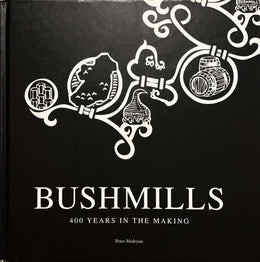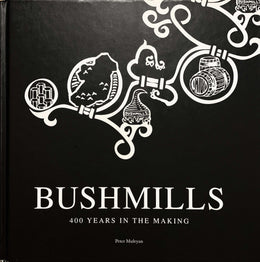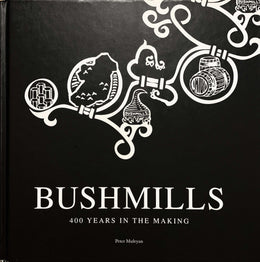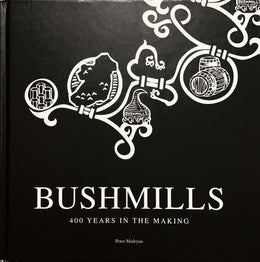Chapter 14: Finn Folk And A Whisky-Colored Cat; “Orkney Stories: A specially commissioned collection by Highland Park”

Libby Purves, journalist and presenter of Midweek on BBC Radio 4, came to Orkney in the most traditional way, by her own boat. In an account that makes an intriguing counterpoint to Will Self's, she describes how she and her family discovered the cosmopolitan delights of Stromness and Kirkwall.
Frank Cowper, who sailed round Britain in the 1890's, was the greatest of unsung yachtsmen: a gentle classicist, pottering hundreds of miles in his converted fishing-boat long before the days of auxiliary engines and ship- ping forecasts. He produced the first complete pilot books of British waters, and they enlivened a similar journey in 1987. With my husband Paul, and children aged five and three, we had set out to sail the gaff-rigged modern pilot cutter Grace O'Malley round mainland Britain, following in his wake. We grew very fond of old Frank, who most winningly alternates navigation- al advice with artless observation and quirky history. He was a good companion.
Especially, we saw eye to eye over Orkney. He came here after long weeks creeping carefully up the west coast of Scotland and through the Hebrides, and on arriving at Stromness uttered a gasp of pleasure which we echoed more than ninety years later. Finding the little town alive with busy- ness, brought by the herring-fleet and its own commerce, Frank Cowper exclaims "I realized we were quite in the world again . . . arriving in this busy little port after the solitude and wilderness of the Western Isles makes one feel like a country cousin coming in to town".
We felt exactly the same. We had not expected the sophistication of Stromness; over the preceding weeks, although we had met tolerant kindness and marvellous scenery enough to compensate for atrocious weather and foul northerly winds, we had lived in a world where the height of man- made civilization was represented by the Seamen's Mission at Kinlochbervie (where they let us have a hot breakfast and a shower and watch television for an hour). After the bleak, lonely splendours of those weeks, Stromness felt like Las Vegas. We had expected some bleak little township, and found ourselves instead surrounded by decadent comforts at every twist of the crooked streets. Suddenly we were in a European, a cosmopolitan port. Within ten minutes we had found a cup of real coffee and comfort to drink it in, a service wash for our foul bedding, fresh water, diesel, a bank, and shops selling exotic cheeses, untinned ham, and fresh bread on every day of the week! We purred with satisfaction.
This attitude, taken from our daily diaries, sounds rather silly in retrospect, as if we had left the most glorious unspoiled coastline in Northern Europe to sigh for joy at the sight of a row of shops. But the pleasure went deeper than mere convenience. We had grown lonely up those empty lochs, the four of us huddled together in our little boat. Nature had started to seem too big and bleak, and we wanted the warmth of other human breath, past and present, around us. And Stromness strikes the visitor as a cosmopolitan, sophisticated little port town with no provincialism about it. Its solid 18th- century merchant tradition, its history of harbouring serious ships like Captain Cook's Resolution, and Discovery, seemed to have left it a lot of confidence.
What is more, the children were whisked out of our hands with dis- patch by the Orcadia Folk Art Studio for a puppet-making workshop in a basement cave full of strange, trollish little figures of fishermen and carpenters and creatures with monstrous silver heads and gauze draperies representing the Finn Folk of Finnfolkaheem, the legendary land of jewels and golden sand at the bottom of the sea.

The two of them came back clutching sinister figures of their own and burbling happily about the Muckle Mester Stoor Worm whose terrible death at the hands of Assipattle and his flaming lump of peat led to the formation, out of the Worm's teeth, of Shetland, Orkney and the Faeroes. My daughter, aged three, gained great credibility by informing them off her own bat that the dying monster "did a big sickup, and that turned into England".
Orkney, in short, made us happy from the start. I wandered back to the studio that night and listened to the pipes and the memories; next day we hired a car and drove to Kirkwall to look at St Magnus' Cathedral and sow the seeds of another good story: for weeks afterwards the children played games about St Magnus the Good Viking who wouldn't fight. We revelled, as a farming family, in the fertile arable flatness, enriched with centuries of patient seaweed manuring. Under the pouring rain we received a lecture of wild, windmilling enthusiasm about Stone Age drainage from Alan Stewart at Skara Brae.
We came to the Highland Park distillery too, where a winning young man led us solemnly through the curious mixture of high technology and lumps of peat, old wooden spades and Spirit Safes which is a malt whisky distillery. The children stroked the cat, a whisky-coloured creature with a responsibility for mousing and ratting around the heaps of golden germinating grain.
That night we fell happily asleep on our berth against Stromness quay, as the sound of singing belted out of the Royal Hotel. We were back in the world again, surrounded by life, and sat out a gale there in great contentment. Then, on a rare and glorious morning, out we sailed onto Scapa Flow, hurling 50p pieces in the water as a tribute to the Finnfolk in the hopes of fair weather. The great sheltered sound lay around us, island after island rising in blue-green misty layers, every sort of island, from towering Hoy to flat Flotta. Standing stones on the horizon greeted us equably over fifty centuries, and far away rose the red tower of St Magnus, the glory of the North.
So, of course, instead of heading dutifully south and east, to round Duncansby Head and go home from poetry to prose, we stopped another night anchored at St Margaret's Hope. We took the Churchill Barrier road to the sad, triumphant little Italian chapel on Lamb Holm built by those poor homesick Catholic boys from Camp 60, and came back to mooch around the Wireless Museum. From 1912, the long-dead voice of Willie Kemp quavered out of a large dented gramophone horn, singing "There's nothing but smiles in the Or-ke-ney Isles".
Sometimes I wonder why we aren't still there.
Written by Libby Purves
The text is an excerpt from "Orkney Stories: A specially commissioned collection by Highland Park" (pp. 73 - 76), published 1995 by Matthew Gloag & Son Limited under the commission of Highland Park Single Malt Scotch Whisky.







